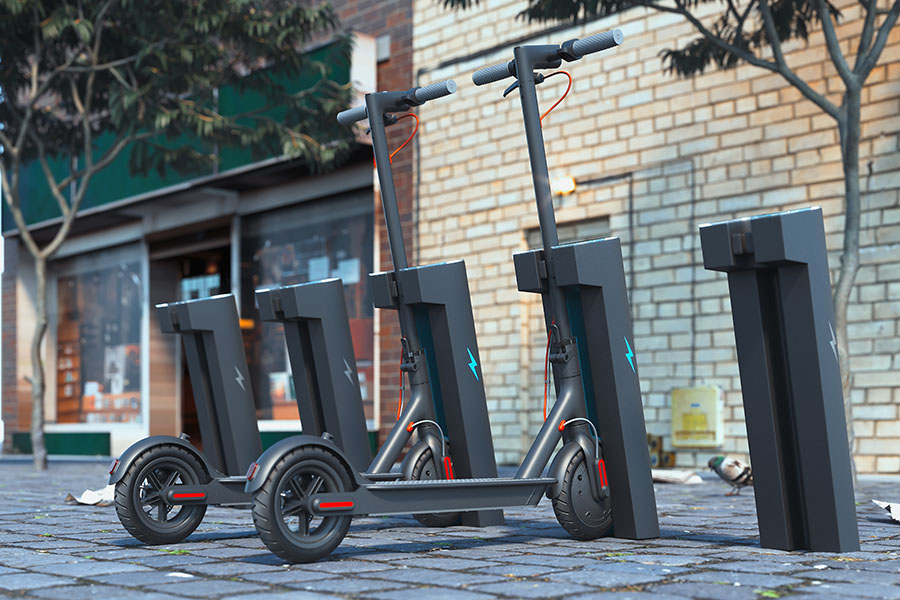KTN launches Micromobility Hub events

KTN has launched its Micromobility Hub, kicking off with three hour-long webinars in July 2021 where delegates can share best practice and identify barriers and opportunities to adoption and implementation.
KTN is exploring micromobility through its new Micromobility Hub, looking at everything from e-scooters to the infrastructure needed in urban settings.
The advent of Covid and its accompanying lockdowns have seen a big change in how we travel. Commuter journeys plummeted, longer journeys decreased, city centres emptied; the knock-on effect on public transport has been huge.
How have these changes affected micromobility and active travel modes, two areas encompassing a wide range of transport modes including e-scooters, cycling and walking? The changes to why we travel, where and how far, combined with a growing focus on health, wellbeing and the desire to reduce CO2 emissions, has seen a rise in active travel modes. Whilst during the early stages of the pandemic, urban e-scooter schemes suffered a downturn, cycling in the UK in 2020 was up from 2019 levels by 45.7% (Department for Transport, Road Traffic Estimates 2020).
To ensure micromobility remains a viable form of travel, the infrastructure in many cities and towns needs to be adapted to encourage ongoing adoption. Active travel needs to be integrated with other transport modes to truly maximise adoption including in rural areas. This requires novel business models, digital innovations, new infrastructure and behavioural changes.
Electric scooters are a more recent form of micromobility but are classified as a ‘motor vehicle’. This means the laws that apply to motor vehicles also apply to powered transporters and they cannot be taken onto a public road, or in spaces that are set aside for pedestrians, cyclists, and horse-riders – that includes pavements and cycle lanes.
Some Local Authorities have begun e-scooter trials to assess their feasibility and adoption with mixed success. As a mode of transport, they offer an efficient form of travel over short distances, but their misuse and random abandonment has caused issues for Local Authorities, e-scooter companies and the general public, particularly those with physical and hidden impairments.
To truly empower people to make travel choices right for them requires the right digital and physical infrastructure to be in place to ensure people have options. Whether on wheels or by foot, users need options that are safe, efficient and reduce their carbon footprint.
How do we capitalise on these changing attitudes to transport?
KTN has launched its Micromobilty Hub with three hour-long webinars where delegates can share best practice and identify barriers and opportunities to adoption and implementation. These short sessions are designed to empower innovators and Local Authorities to be well-placed to deliver active travel solutions. The three sessions are aimed at Local Authorities and councils, e-scooter suppliers, ravel behaviour specialists, digital and data specialists, business model design experts and integrated transport experts.
The sessions will cover e-scooter best practice, attitudes to micromobility and investment in infrastructure, and will run on 16th, 23th and 30th July from 10am-11am. Book here.
To find out more about the Micromobility Hub initiative, contact KTN’s Transport Systems expert Rob Furlong.

